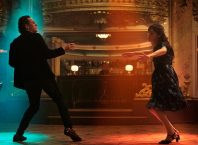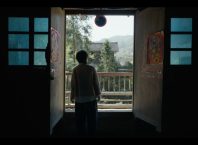Celebrating its fifth anniversary this year, EPOS – The International Art Film Festival – will run in Tel Aviv between the 19th and the 29th of the month. Alongside workshops, masterclasses and exhibitions, more than 50 films from Israel and elsewhere will be screened during the festival, an idiosyncratic blend of documentary, music and cinema creating intriguing intersections between art and film. Highlights include documentaries about Abbas Kiarostami, Lang Lang and David Bowie; the Israel premiere of The Invisible Woman, focusing on the often overlooked relationship between Charles Dickens and actress Nelly Ternan; and the Israeli Films Competition.
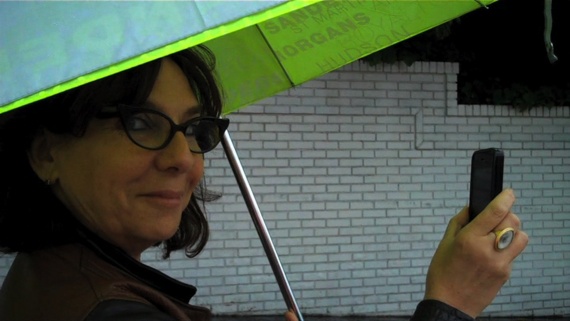
From time to time, one comes across critical pieces that dismiss Sophie Calle as another one of those dilettantes who con the great unwashed into thinking of them as artists. I rather suspect that Calle knows this, and that she sometimes plays quite wilfully on this presumption. At the beginning of Sophie Calle, Sans Titre, for instance, she is mucking about in a coffin. Later on, she negotiates the purchase of her own burial plot. (“I don’t believe it, I’m buying my own grave!” she titters.) But I think this assessment misses the point. True, she places herself front and centre in her expressive, multi-dimensional work, leaving her open to the charge of narcissism. But her work reaches beyond the studied artificiality of much performance art, creating an expansive, all-encompassing – sometimes intrusively so – tableaux. It seems to me more accurate to think of her as an agent provocateur, the small stone cast in the pond and spreading ripples with a disproportionate impact on the wider world.
Directed by Victoria Clay Mendoza, Sophie Calle, Sans Titre is an unforced, occasionally charming introduction to Ms Calle’s oeuvre. That the documentary comes across this way is due to a typically Calle-esque conceit; rather than submitting to a conventional profile, she allowed the director untrammelled access to her home and archives, to use as she wished. There are moments of sober reflection, about her magpie-like acquisitive instincts (Calle says she has a bad memory) and the fluid two way traffic between her life and her work (“The happy things I lose, the unhappy I use”). She talks about some of her more notable works, like Take Care of Yourself – a disquieting meditation about female identity, Calle’s entry to the 2007 Venice Biennale – and Suite Venitienne, which today might be classified as stalking on a epic scale. What we do take from the film is a sense of Calle’s curiosity, the capacity to ask the discomfiting questions that we would otherwise ignore. That she does so with charm and a naivety that seems genuinely unforced makes this all the more engaging.
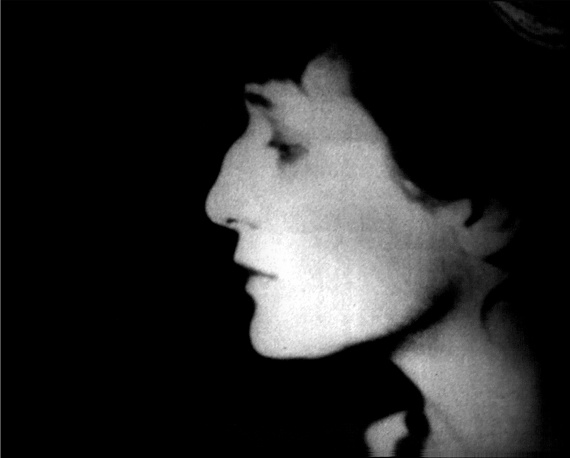
“A poem is a small space, in which language becomes law. What is said in that space, words can’t be substituted or switched around. That is the secret of poetry. ” Anna Akhmatova ploughed a lonely path for much of her life, and not entirely by choice. Her work was her own space, her assertion of the primacy of individual experience. When read against the context of the times she lived through, her poetry – suppressed by communism for much of her life – takes on an additional poignancy.
A Film About Anna Akhmatova, directed by Helga Landaeur, is a brisk and efficient overview of the life and times of Russia’s most famous poet of the 20th Century. Anatoly Laiman, Akhmatova’s secretary near the end of her life as well as a friend, puts her life in context; intriguing tidbits leaven the narrative. Akhmatova’s mother, for instance, had her daughter’s hair shaved when she was ten, to curb her vanity. She loathed Chekov, because she felt that he looked down on provincial women. Her first husband, Nikolai Gumilev, also a poet, was arrested and executed by the Cheka in 1921. When she took up with NIkolay Punin, the poet who became for a while her common-law husband, they shared a home with his first wife, who couldn’t afford to move out. In due course he moved on and married again, but no-one moved out for a while: three wives under one roof.
The documentary is more than gossipy asides though. I’m not sure the majesty of Akhmatova’s work is fully represented in this little film, but we do shape a very clear sense of the writer and the world that shaped her work, and is worth watching for this reason.
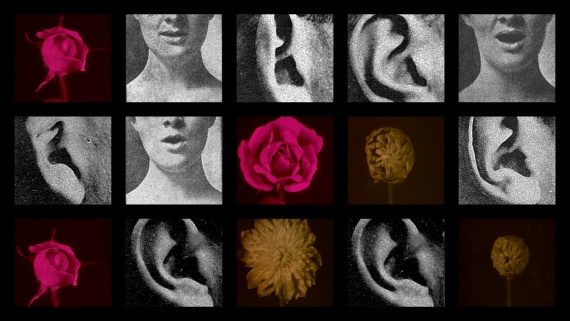
Staying with the past. All This Can Happen is a an usual little document, taking cut-up and remix culture to an unexpected setting, and to largely rewarding effect. Put together with archive footage and stills photography dating from the dawn of the moving image, All This Can Happen – composed, and I think this is the best word to use given its lyrical quality, by Siobhan Davies and David Hinton – is an adaptation of the 1917 novella The Walk, by the Swiss writer Robert Walser. The unnamed narrator is something of a flaneur, not quite a wastrel but happy enough to saunter through a day in his life without any specific purpose. Davies and Hinton transpose his thoughts and observations into a remix of found footage and imagery, employing subtle and quite often unexpected tricks of editing and composition to create a quite affecting document. The technical virtuosity cannot but be admired; but there is also a heart in the film, an unusual – and effective – way of bringing a dead world back to life.
The full program and ticket information may be found on the EPOS website.

